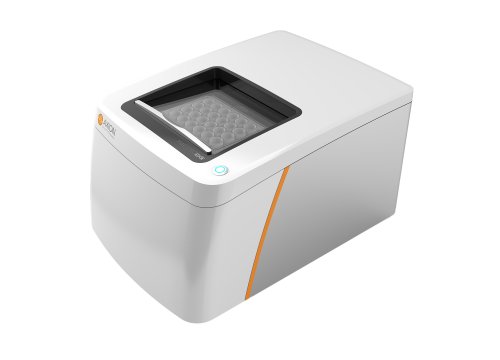Lily Sarrafha, Drew R. Neavin, Gustavo M. Parfitt, Ilya A. Kruglikov, Kristen Whitney, Ricardo Reyes, Elena Coccia, Tatyana Kareva, Camille Goldman, Regine Tipon, Gist Croft, John F. Crary, Joseph E. Powell, Joel Blanchard, and Tim Ahfeldt
iScience, August 02, 2023
Scientists use the Maestro multielectrode array (MEA) platform to perform extracellular recordings of spontaneous electrical activity in 3D hypothalamic organoids.
The hypothalamus plays a critical role in regulating bodily functions including temperature, mood, sleep, libido, appetite, and blood pressure. Research has demonstrated associations between hypothalamic dysfunction and a number of health conditions such as diabetes, obesity, and Alzheimer’s disease. In this study, researchers generate mature, electrophysiologically active 3D hypothalamus organoids containing a wide variety of neuronal subtypes from human pluripotent stem cells (hPSCs).
To characterize the functionality of hypothalamus organoids in vitro, the team performed extracellular recordings of spontaneous electrical activity using Axion’s noninvasive Maestro multielectrode array (MEA) platform. Results from MEA demonstrated that the organoids were active and exhibited increases in synchrony and intra-burst theta oscillations as they matured. Taken together with other results, the authors conclude that the novel differentiation protocol is a useful tool to generate physiologically relevant models of the hypothalamus for disease modeling and therapeutic discovery for a wide range of health conditions.


